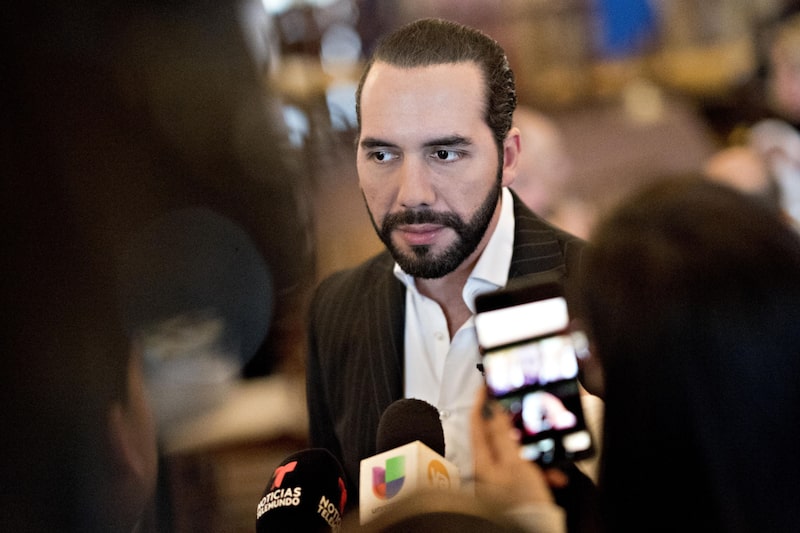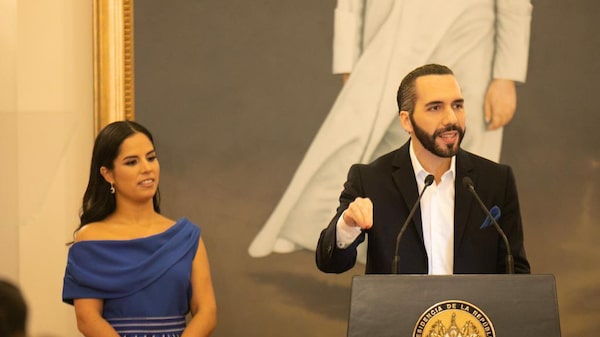Bloomberg — For most of the four years since taking office, El Salvador’s President Nayib Bukele has relished his role as an anti-establishment warrior.
He sacked judges, exited a regional anti-corruption pact, spurned the International Monetary Fund and adopted Bitcoin as legal tender. All the while, he seemed wholly indifferent to what foreign investors thought of him.
It turns out, the brash, ball-cap-backwards 41-year-old president is a hit with Wall Street.
Salvadoran debt is the best performer in emerging markets this year after Lebanon. Even after a pullback this week, the notes have returned 19%, compared to a 2.3% average for other developing nations, according to a Bloomberg sovereign bond index.
El Salvador is one of the most extreme examples of how the world’s riskiest government bonds have recovered after being over-sold last year by money managers who expected a wave of defaults. But it’s also a sign of how investors have warmed to Bukele. Instead of concerns about him running the economy into the ground, they are gushing about his embrace of fiscal prudence and largely looking beyond his autocratic tendencies.

The change in tone started when El Salvador repaid $800 million of bonds that matured last month and repurchased US$452 million of debt due in 2025, making good on repeated promises that the nation would meet its obligations. While there’s still some skepticism on where Bukele will take the country of 6 million, for now, he’s no longer the risk he once was.
“We went from skepticism, from looking at the numbers and hearing his announcement of paying down the bond, to basically being surprised in a good way by his very strong willingness to pay,” said Federico Kaune, head of emerging-markets fixed income at UBS Asset Management in New York.
For the last seven months bonds have been reversing a drop that began when El Salvador adopted Bitcoin alongside the US dollar as its currencies. Bukele has continued to ride the cyrptocurrency, even as its value plummeted more than 40% over the past year. This week, his government said it would open its second “Bitcoin embassy,” this one in Texas.
Bukele managed to spark a bond rally in July when he announced the buyback even as Bitcoin plunged. The remainder of the notes maturing in 2025 have surged to 74 cents on the dollar after trading as low as 28 cents, according to data compiled by Bloomberg.
“We love his willingness to pay back,” said Christine Reed, Latin America regional specialist at asset management firm Ninety One in New York.
There are plenty of potential pitfalls ahead. Reed says El Salvador is unlikely to be able to generate enough reserves to carry out more buy backs in the future, while Kaune calls it a risky investment, troubled by a high debt load and questions over its fiscal outlook.
Another source of concern is Bukele’s hard-line approach to crime. Organizations including Human Rights Watch and the Inter-American Commission for Human Rights have criticized his policies as authoritarian and dehumanizing. He has also tangled with the US, which has sanctioned some former government officials and condemned a decision to remove the attorney general and five top judges.
The government did not immediately respond to a request seeking comment. On Twitter, Bukele has taken note of how he defied widespread expectations that El Salvador wouldn’t pay the bonds, saying international news outlets had written hundreds of articles predicting the nation would default in January.
For now, investors have largely shrugged off concerns about Bukele’s policies — his hard-handed approach to crime has actually helped the economic outlook. Gross domestic product grew at a robust pace in 2022 due to the “unprecedented reduction in crime, and strong remittances and tourism revenues,” according to a statement by the IMF after an official staff visit Feb. 8.
The fiscal deficit is narrowing as well, closing last year at 4.6% of GDP, down from from 5.6% in 2021, according to Fitch Ratings data.
“You can see that they’ve already tightened the belt with the fiscal spending,” said Oren Barack, managing director of fixed income at New York-based AGP Alliance Global Partners. “It was never about willingness to pay it was about ability to pay. Now the two have converged.”
Read more at Bloomberg.com





